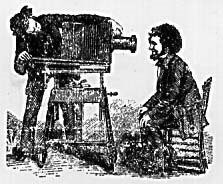In the “General Introduction” from A Cultural Studies Reader, Munns and Rajan begin by discussing the emergence of cultural studies. They say that most scholars agree that cultural studies began around the time after WWII. There were several factors that lead to the endeavor of cultural critique. However, there is no “absolute beginning” of cultural studies (Munns and Rajan 149). The Cultural Studies Reader and Introducing Cultural Studies focus on the texts of Richard Hoggart, Raymond Williams, E.P. Thompson, and Stuart Hall. These founding fathers were “concerned with the question of culture in the class-based society of
1) Term from New Keywords, “class”:
The most conventional meaning of class is “a division or order… or rank or grade of society” (39). Classes affect life chances for individuals-the probabilities of social and occupational mobility; of educational access and achievement; of illness and mortality. They also shape the experiences of individuals, producing the possibility of (more or less coherent) class consciousness (40).
2) Link to Wikipedia, Marxism:
http://en.wikipedia.org/wiki/Marxism
Stuart Hall, one of the founding fathers of cultural studies, describes himself as always remaining a “shouting distance of Marx” (Sadar and Van Loon 37). Here at this site, we can further read about the practice of Marxism.
3) Link to other source, Stuart Hall:
http://www.marxists.org/glossary/people/h/a.htm
This site includes a brief biography of Stuart Hall and a list of some of his works. The site mentions Hall as being faithful to a Marxist tradition, but Introducing Cultural Studies points out his ambiguous relationship with Marxism.

No comments:
Post a Comment